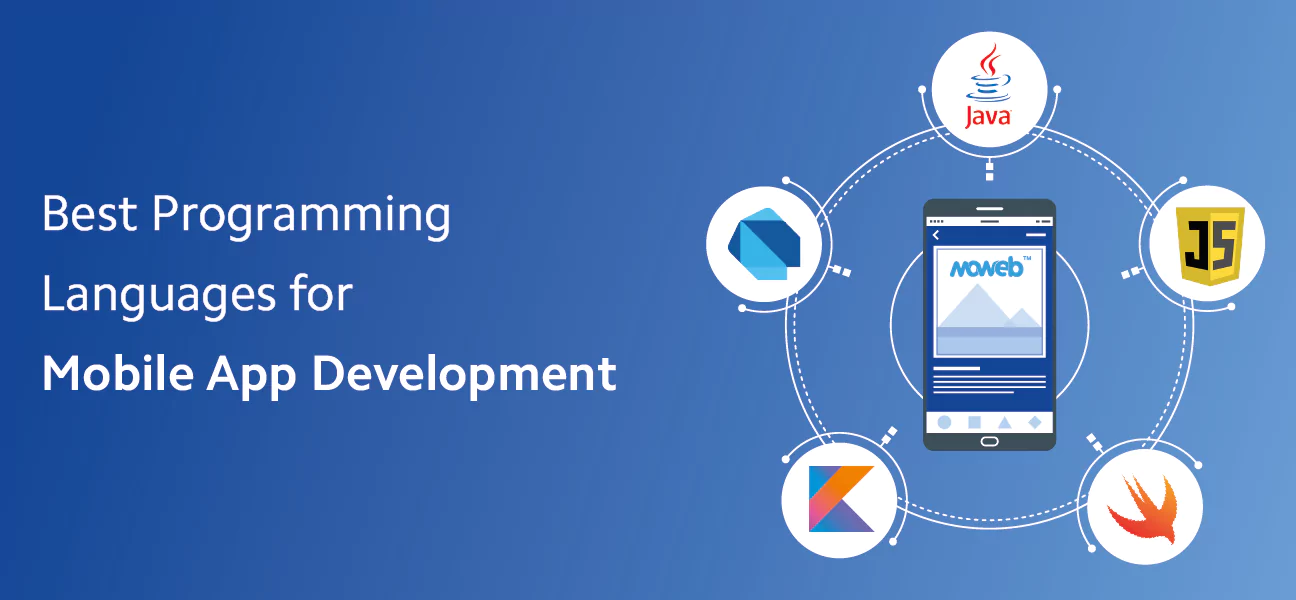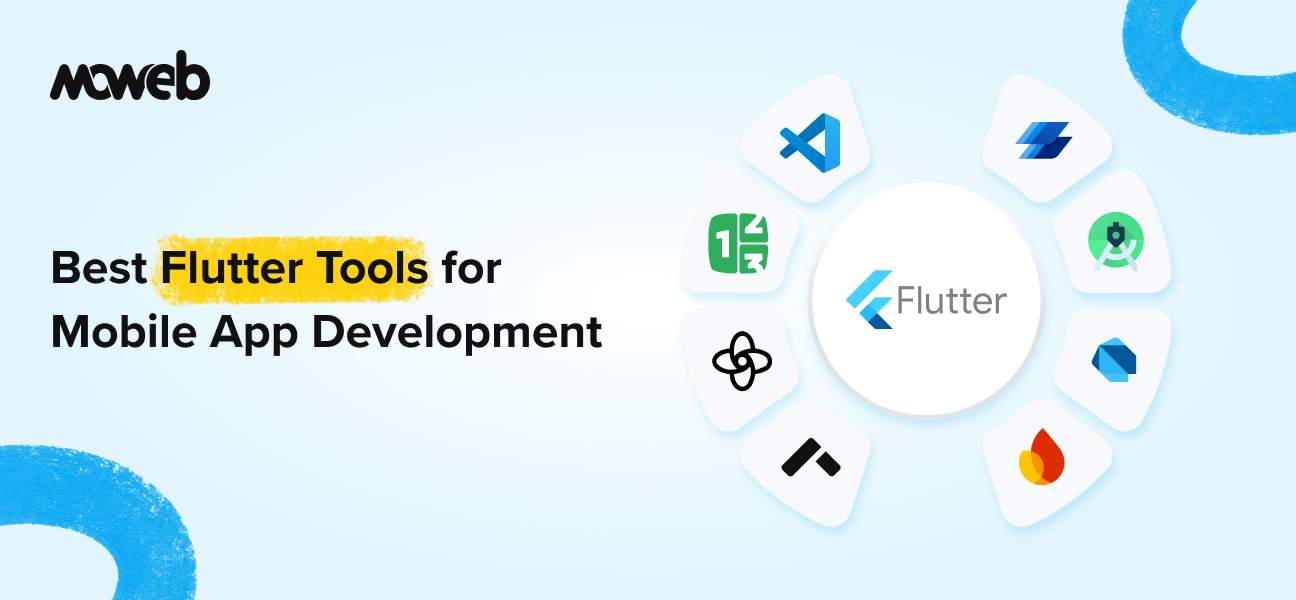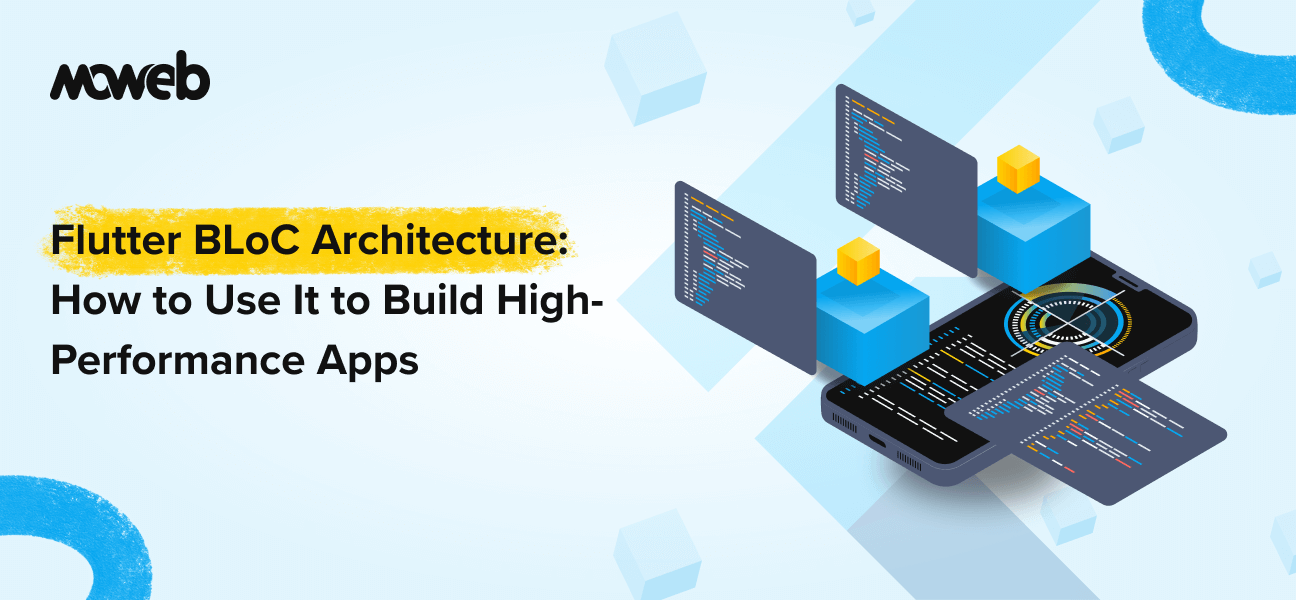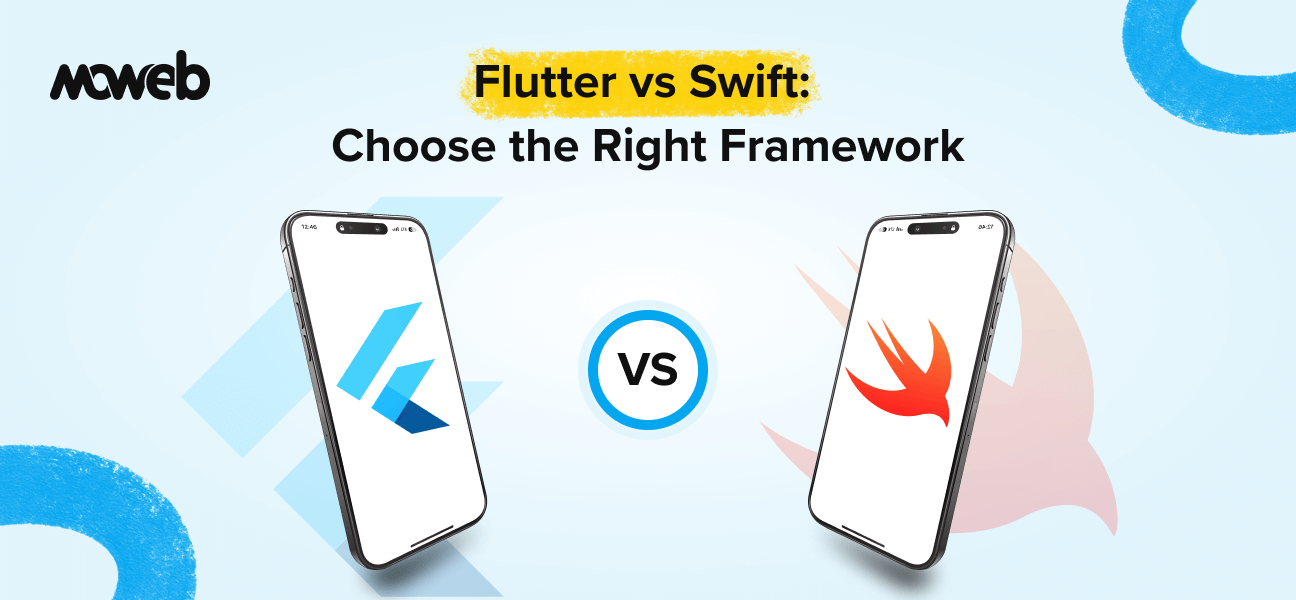
It is a well-known fact that smartphone devices have already become parts and parcels of our everyday life. An average user spends around 2 to 3 hours every day using mobile apps other than with primary functions like calls or text messages. But despite such overwhelming penetration, not all apps just receive the same amount of traction.
Among other contributory factors, choosing the wrong technology stack is often considered to be a key factor pulling the potential of success for any app project. You need to have a clear idea about the best languages for app development and their respective strengths and weaknesses. When you know what should fit perfectly for your project among the multitude of app development languages, you have perfected at least one thing for your app project.
Since we have a large compass to cover the top programming languages for mobile app development in 2023, you need to first consider whether you are going to build a hybrid app or a native app, or a fully-fledged cross-platform app. Let’s take one step at a time and describe the types of platform-specific apps and their respective technology choices.
Here below we explain the 3 principal choices for rolling out your apps.
Native App Development
When you build one single app for one particular platform such as iOS or Android, it is called native development. For native Android platforms, you need to look for the best languages for Android app development. Similarly, for the iOS platform, you have to choose among the best programming language options for iOS development. Since native languages are optimized for platform-specific development and output, they remain ahead of the hybrid and cross-platform options in terms of performance and user experience. The only drawback of native development is higher development cost and time as no codebase can be shared across the platforms. For native platforms, the top mobile app development languages include Swift and Objective C for iOS and Kotlin or Java for Android.
Hybrid App Development
When you develop one single app that runs on all mobile OS platforms, the approach is called hybrid development. It is about “writing code once and running everywhere” and because of this approach, hybrid development is cost-effective and ensures faster time to market for the app projects. The demerits of hybrid development include a lack of platform-specific optimization resulting in poor app performance as well as user experience. Over the years, hybrid app projects mostly used tried and tested dynamic web development languages and frameworks such as JavaScript, HTML, CSS, AngularJS, ReactJS, C/C++, Laravel, Ionic, and several others. Hybrid apps are often more mobile-optimized versions of web apps running smoothly on both mobile OS platforms as well as web browsers.
Cross-platform App Development
Cross-platform apps bring together the best of both native as well as hybrid app development approaches. While allowing up to 80% to 85% reusability of the core codebase across platforms, hybrid apps also leave room for using native UI modules and code for delivering a more platform-specific look, feel, and user experience.
Cross-platform development has particularly become popular in recent years thanks to the emergence of some frameworks that, despite reusing the maximum of the core codebase, ensure delivering highly native performance and user experience. The best programming language for mobile apps following cross-platform development approach includes JavaScript, Dart, and .Net used by the top three frameworks such as React Native, Flutter, and Xamarin.
Now that we have explained three platform-specific development approaches, their pros, cons, and the technology stack associated with them, let us explain the best languages for mobile app development in the market now.
JavaScript
Being one of the most popular options among the dynamic programming languages used for web projects, JavaScript made a big impact on both web and mobile app projects through an array of frameworks such as ReactJS, jQuery, AngularJS, VueJS, Svelte, ExpressJS, NodeJS, BackboneJS, and a few others. Today, JavaScript frameworks are stapled choices for web and mobile app development projects.
Thanks to the variety of performance-savvy frameworks and popular libraries, JavaScript has emerged as one of the leading front-end app development languages. JavaScript libraries and frameworks continued to evolve and deliver new and useful approaches for mobile app development. ReactJS library for instance gave birth to the React Native framework, the most popular cross-platform development framework with several developer-friendly features and awesome app performance output.
Some of the key qualities, capabilities, and strengths that made JavaScript so exceptionally popular for web and mobile app projects include the following.
- JavaScript offers developers a powerful full-stack development language to build awesome frontend interfaces, backend development, and mobile app development.
- Developers with JavaScript coding skills are disposed to several leading cross-platform frameworks often used by hybrid and cross-platform mobile app projects.
- JavaScript besides its dynamic nature offers a highly component-based architecture allowing developers to reuse coded components across app projects.
- When you have a hybrid or cross-platform development in your mind, jQuery appears to be the best dynamic JavaScript library for hybrid development, and React Native is the leading framework for mobile app projects.
Java
Java has been one of the aged, evolved, and time-tested programming languages used in countless ambitious web and software projects. It was the key language for most of the Google projects including Android. No wonder, just until recently it had been the official programming language for Android app development before being replaced by Kotlin. Even today, the vast majority of Android developers primarily rely on Java.
Over the years, Java became irreplaceable as the leading frontend and backend language for app development across web and mobile platforms. Some of the key strengths, features, and capabilities that made Java popular include the following.
- Java offers a very simple and easy-to-read syntax compared to other languages used by mobile app projects across niches.
- Java is an object-oriented language with dynamic abilities to deal with real-world app functions.
- Coming loaded with a rich set of APIs, Java helps developers to make a range of value additions as per the project requirements.
- Java, having been there for more than two decades, boasts of the largest community of skilled and experienced developers and robust repositories of web resources.
- Java is also a strongly typed language and this allows for detecting coding mistakes easily and swiftly.
Swift
Swift is unarguably the best language for iOS app development with official recognition and support from Apple. Swift was created by the development team at Apple to keep the shortcomings of Objective C at bay and provide an array of advanced features and functionalities required by modern iOS app projects. No wonder, after its release Swift was quickly recognized as the programming language loved most by developers on the Stack Overflow platform in 2015.
Now, the Apple App Store is largely dominated by apps made using Swift programming language and the Objective C has mostly been dropped as an option by the iOS developers. Some of the key strengths, features, and capabilities that made Swift stand apart include the following.
- The simple coding syntax that any newbie can master is the principal strength of Swift.
- Swift is now the official Apple iOS programming language which automatically made it a must-hone skill for app developers.
- Swift also offers inbuilt design-centric features with feedback provided in actual time.
- Swift offers one of the largest repositories of tools for iOS developers to build the app faster without compromising on quality.
Kotlin
When you are looking for the best Android programming language option, Kotlin automatically appears to be the best choice just because it has been developed by the core Google team with a lot of value additions to take over Java. The best thing about Kotlin is that as an Android developer with Java expertise you can easily get used to Kotlin programming just because both languages are interoperable and sync easily with one another.
Kotlin, ever since announced as the official language for Android development rose to fame and prominence among seasoned developers because of several of its unique capabilities, simple and low-footprint code syntax devoid of boilerplate code, and several other attributes. Let’s have a look at the strengths, features, and capabilities of Kotlin that made it stand apart from the rest.
- Kotlin follows a low-footprint coding pattern resulting in fewer coding errors and easier debugging.
- Kotlin is completely interoperable with Java and this allows Java developers to get used to Kotlin easily. While programming developers can also use Java and Kotlin code in an interoperable manner.
- Kotlin enjoys the support of a whole array of leading IDEs including IntelliJ IDEA and Android Studio.
- Kotlin allows developers to use lambdas for functional coding.
- Kotlin is a typesafe language that results in the least possibilities for coding errors.
- Kotlin offers robust community support and a repository of tools for app projects.
- In comparison to Java Kotlin offers a relatively easier learning curve.
- Kotlin also gave rise to a robust cross-platform development framework called Kotlin Multiplatform to extend the benefits of Kotlin for cross-platform and iOS app projects.
Dart
Dart is the programming language used by the widely popular cross-platform development framework Flutter. Google created Dart as the object-oriented and general-purpose programming language back in 2011 to help support both client-side and server-side development with an array of modern features. Dart by using a syntax similar to C language and by allowing developers to compile code into JavaScript brought a lot of ease and flexibility to the developers’ table. Now Flutter is widely used as the framework for both cross-platform and native app projects showcasing the power of Dart programming language.
Some of the key strengths, features, and capabilities that played an instrumental role in the continuing popularity of the Dart language include the following.
- Dart uses a highly readable and low-footprint syntax similar to C language.
- Dart ensures a very manageable learning curve for beginners.
- Dart code can be easily compiled and reused across different platforms.
- After rising to awesome popularity through the Flutter framework, Dart now boasts of huge community support.
Parting Remarks
Did you expect Objective C to make up this list of top programming languages for mobile app development? Well, it no longer enjoys the official support of the Apple iOS platform and the emergence of a complete language like Swift has made it completely irrelevant for iOS projects. On the other hand, despite the emergence of Kotlin, Java is still relevant and popular for the entire Android ecosystem.
So, we tried to bring the programming languages to focus that are most relevant for the present context of mobile app development projects across the platforms. These above-mentioned languages are not going to lose their relevance any time soon.
Found this post insightful? Don’t forget to share it with your network!





